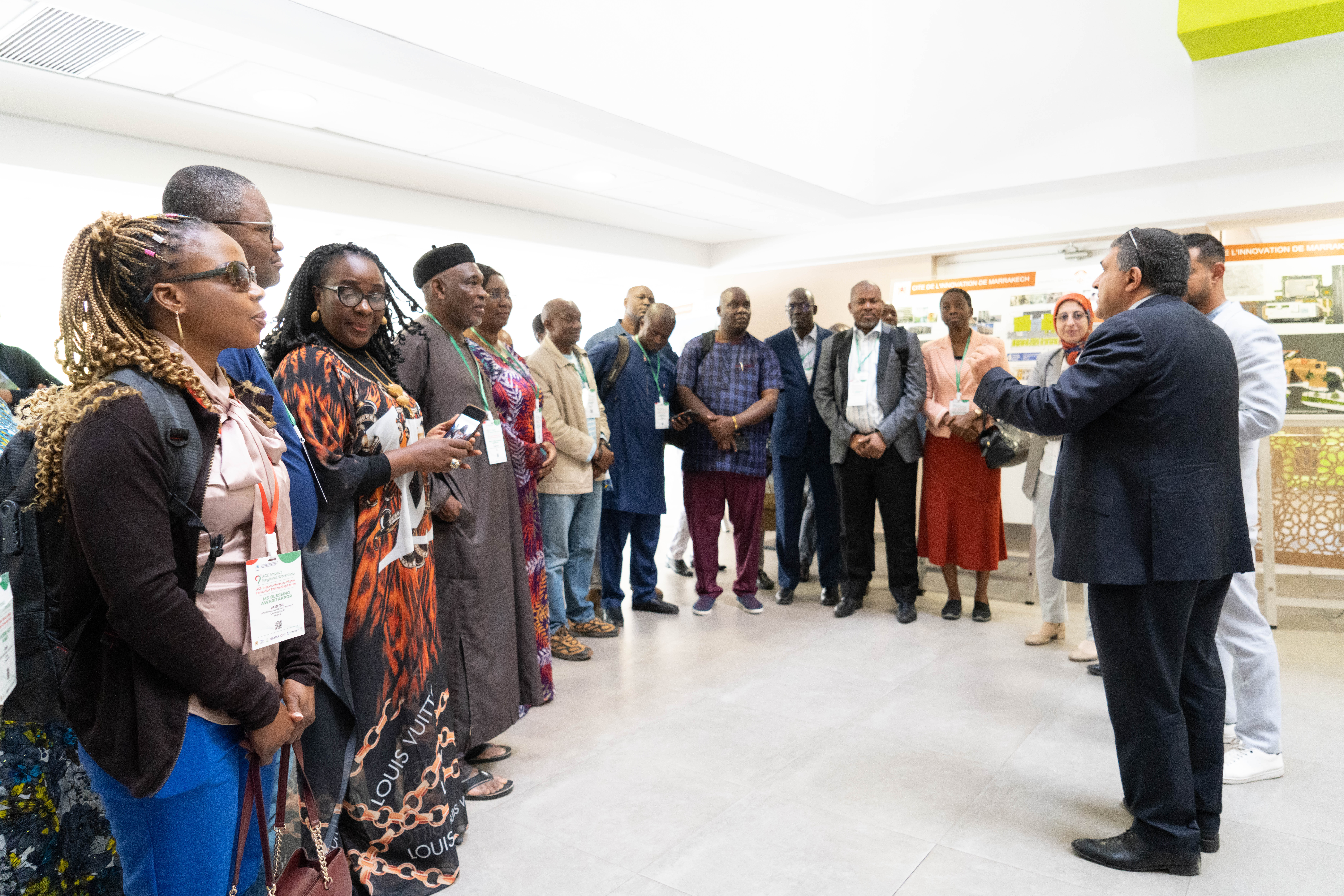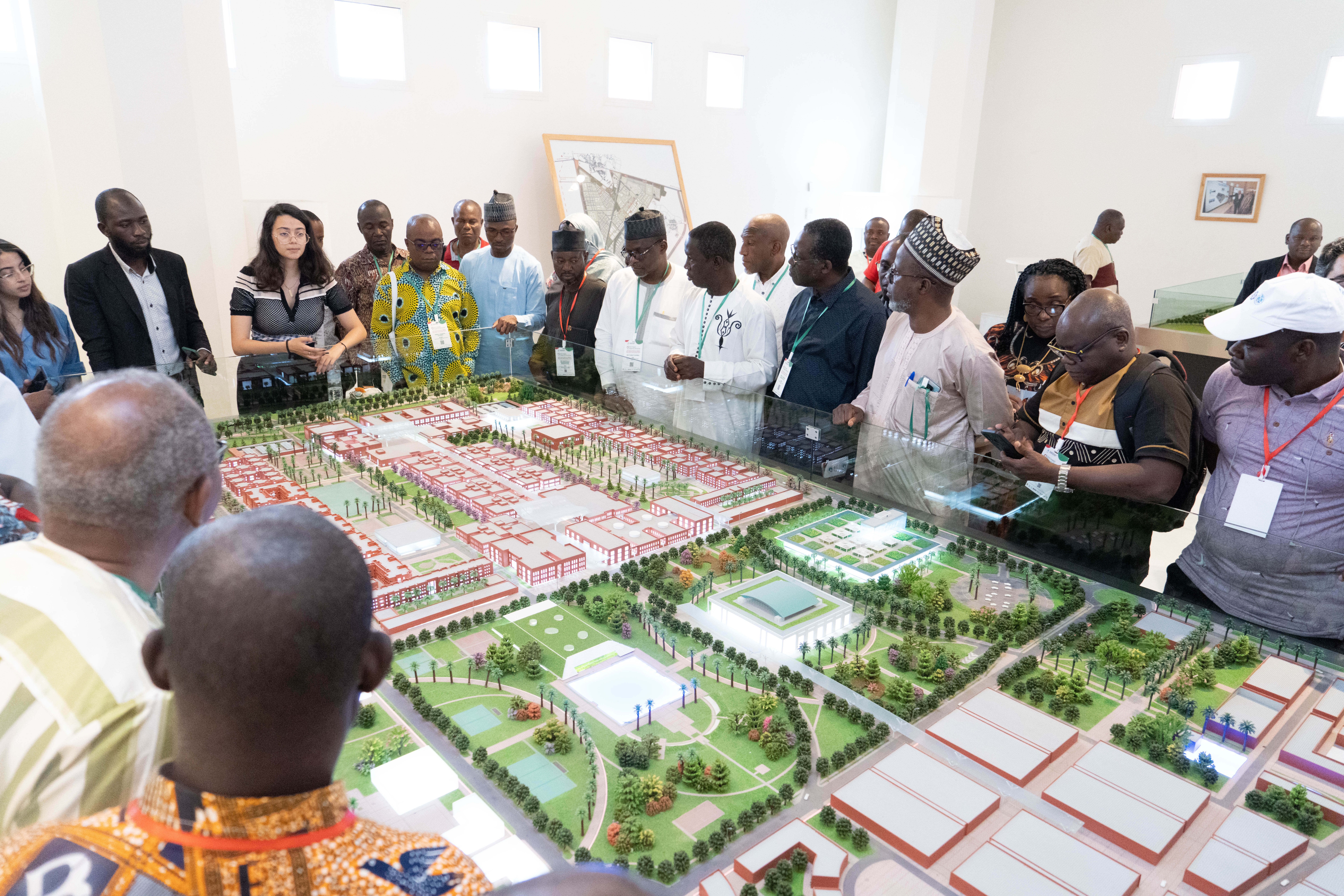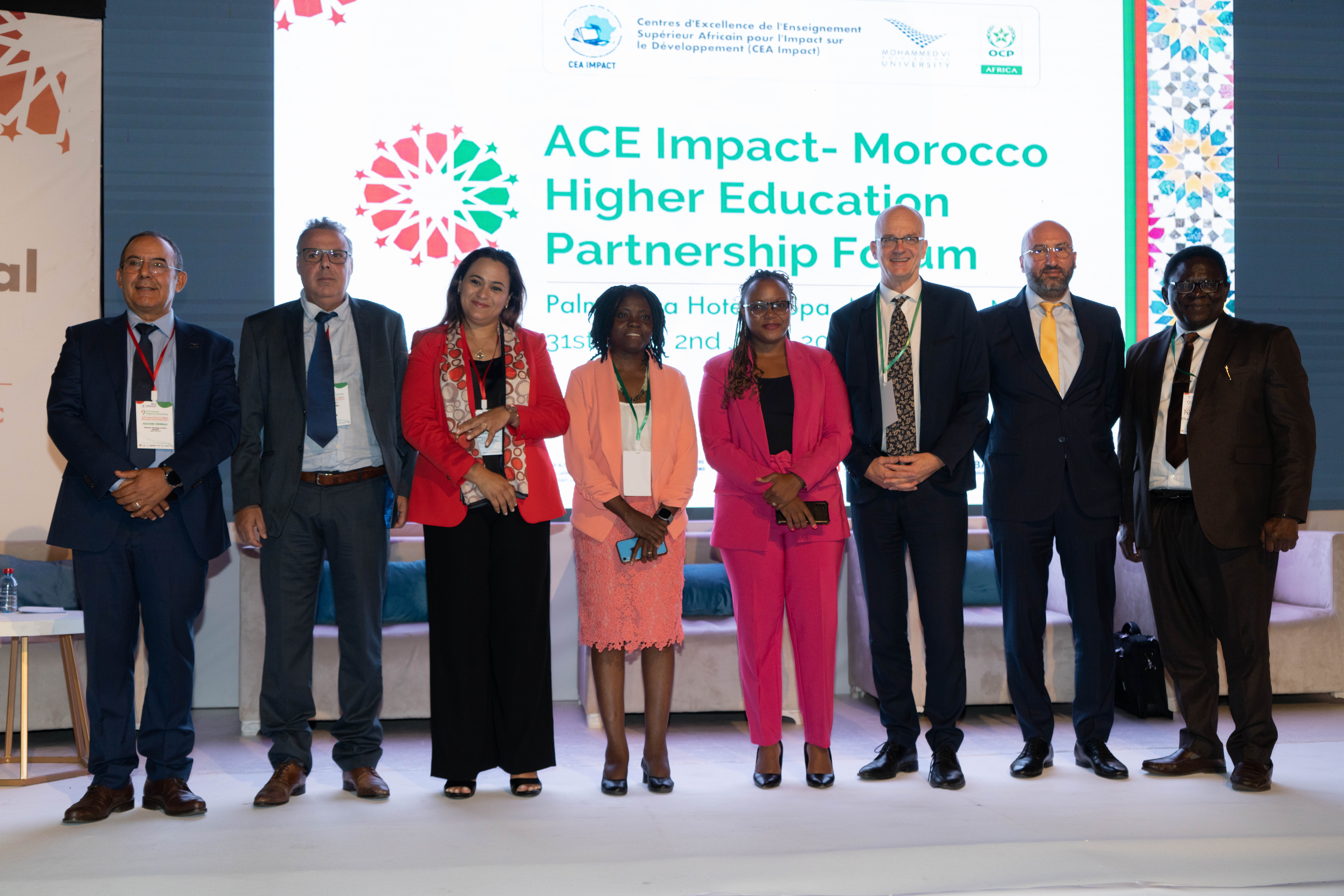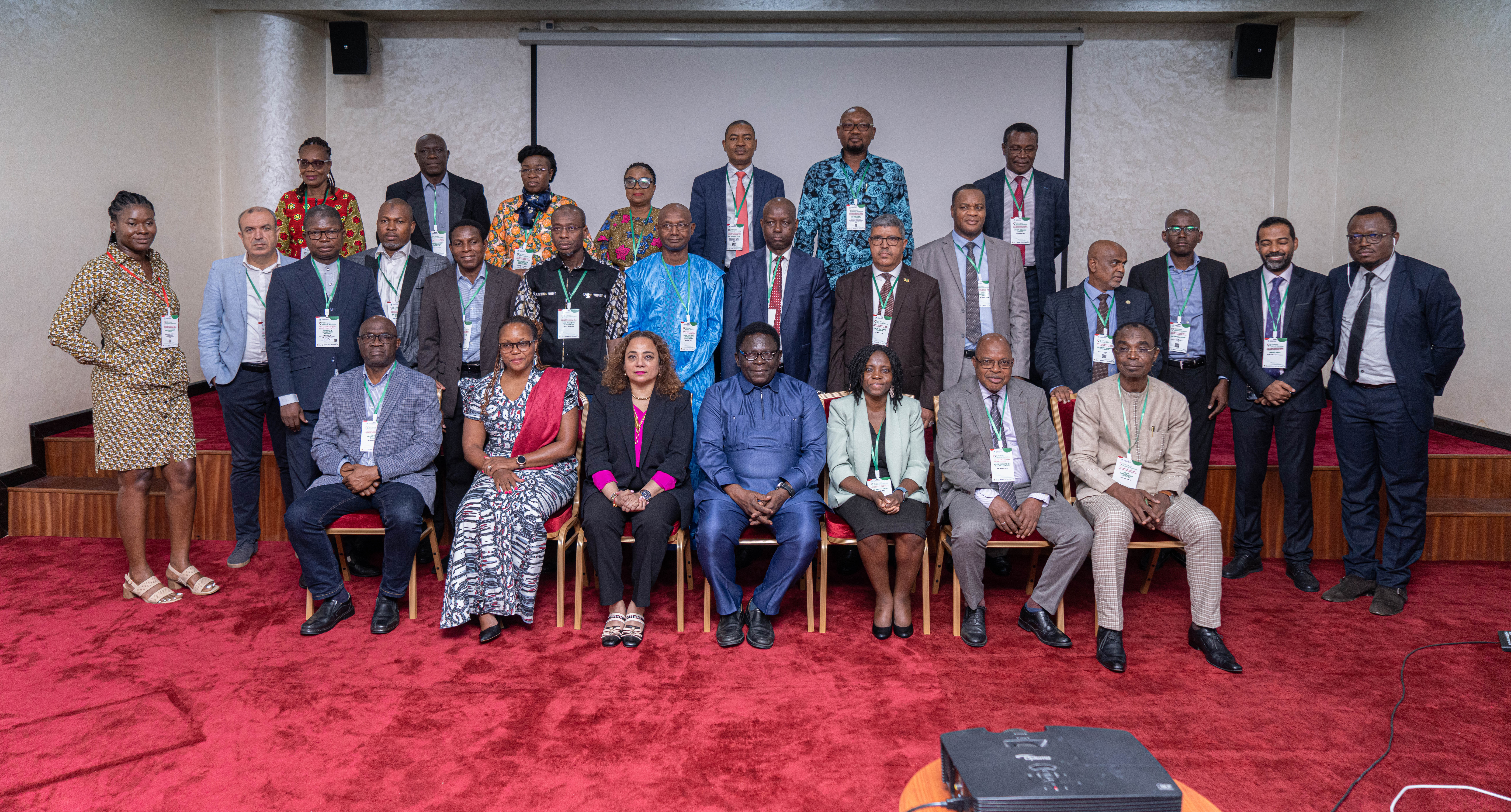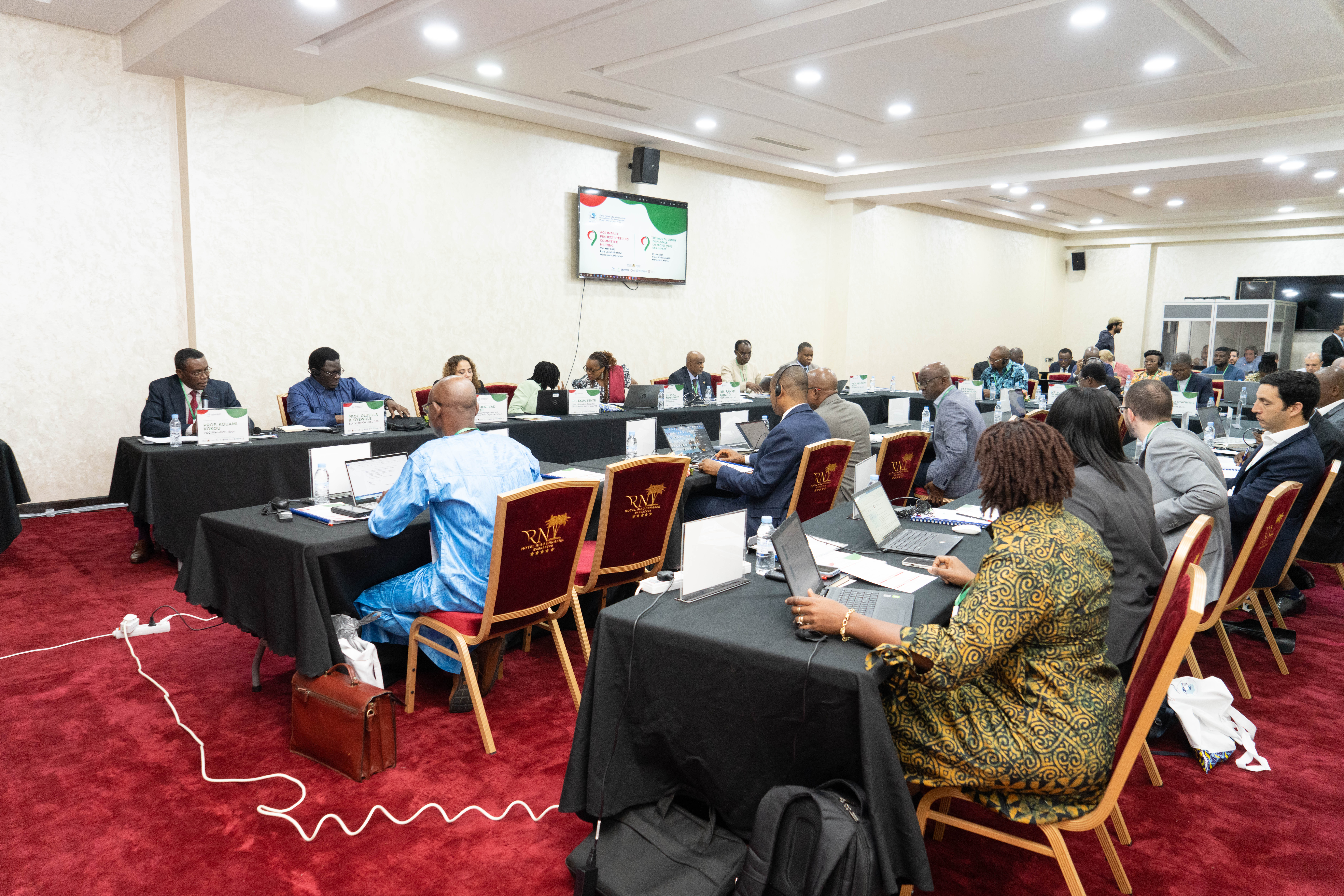ACE Impact-Morocco Partnership Forum provides learning opportunities for Vice Chancellors
To fast-track the connections between Sub-Saharan Africa and Moroccan universities and industries, the World Bank partnered with the Morrocco Ministry of Higher Education, Scientific Research and Innovation, Mohammed VI Polytechnic University (UM6P), OCP Africa, the Association of African Universities (AAU), and the French Development Agency (AFD) to co-host the ACE Impact-Morocco Partnership Forum from 31 May to 2 June 2023 in Marrakech, Morocco.
This Partnership Forum involved the ACE Impact Centers, Moroccan government representatives, Moroccan universities, Tunisian universities, private sector representatives, experts in commercialization of research, other thematic/sector experts, and experts from the World Bank, AFD, IRD, and AAU. Because sustainability is vital for the future of the ACE Impact Centers, the Vice Chancellors of universities hosting the 53 Centers were invited to participate in this partnership forum so that they benefit from knowledge sharing and hopefully forge partnerships and networks with regional stakeholders to advance the sustainability of their Centers and their higher education institutions overall.
Learning visit to Mohammed VI Polytechnic University
In line with the objectives of the partnership forum, over 40 Vice Chancellors and Focal Points of governments participating in the ACE Impact Project visited the Mohammed VI Polytechnic University on the 31st of May 2023. Mohammed VI Polytechnic University is strategically positioned to promote applied research and innovation and places research and innovation at the forefront of African development.
The visit by the Vice Chancellors focused on understanding the strategic plan for Mohammed VI Polytechnic University, learning how faculty are supported to digitalize their courses, gaining exposure to the peer learning school, learning about the relevant and impactful research being conducted in the areas of phosphate fertilizers, green energy, materials science, and nano engineering. The Vice Chancellors who visited Mohammed VI Polytechnic University attested to the fact that is a model university of excellence in Morocco and Africa as a whole – demonstrating a high quality and conducive environment for teaching, learning research and collaboration.
Best Practices in Research Funding
Since funding is a key ingredient of sustaining the ACE Impact Centers, another special session on “Best practices in research funding in the context of autonomy” was organized for the Vice Chancellors on the 1st June 2023. Professor Mustapha Bennouna the former President of Abdelmalek Essaadi University, Tétouan-Morocco and now a World Bank Consultant facilitated this session to discuss good practices regarding research funding and shared experiences across African universities. “There are several reasons why governments must invest in research, and these include strengthening innovations, encouraging dynamic businesses, developing an effective system for creating and disseminating knowledge, taking advantage of the transition to the digital economy, and fostering talent and skills” stated Professor Bennouna at the beginning of his presentation.
Morocco is currently dedicating 0.8-1% of its GDP for research expenditure and the goal is to match and exceed countries such as Sweden, Denmark and Finland who are spending more than 3% of their GDP on research. Professor Bennouna also spoke about sources of research funding in general, common approaches to allocating public research funding, research funding in Morocco, Moroccan sources of financing and strengthening the financial autonomy of universities. He advised that for sustainability to be achieved, governments must be the largest sponsors of research and other sources such as private sector, foundations, sponsorships, and charities must complement government efforts.
Since 2015 the government of Morocco has made strides in strengthening the ‘National Fund for Scientific Research and Technological Development’ by ensuring that it is supplemented by other sources of funding. The country has also prioritized studies into the introduction of appropriate incentives and mechanisms such as research tax credits and public/private partnerships with a view to mobilising private research funds. The National Centre for Scientific and Technical Research (CNRST) is key player in the Morocco research and innovation space – it runs the National Support Programme for Sectorial Research and issues calls for research proposals to public institutions.
“To strengthen the financial autonomy of universities a new law called the ESRI PACT provides for the strengthening of the universities’ financial autonomy and the introduction of a control system based on performance criteria”, said Professor Bennouna. Financial autonomy will encourage universities in Morocco to mobilize their own funds and build their capacities to contract large projects and to invest in innovation and entrepreneurship.
Question and Answer Session
During the question-and-answer session following Professor Bennouna’s presentation the Vice Chancellors asked for advice on alternative sources for supporting universities since budgets provided by governments to universities were decreasing. Professor Bennouna recommended that universities target participating in thematic cooperation networks to respond to some international calls for large research funding.
Another question was on the level of PhD graduates employment in Africa and Professor Bennouna advised that universities should focus on running innovative PhD programs and not producing theoretical PhD graduates. The focus must be on developing new skills for PhD graduates and linking the training of PhDs to economic and global needs, advised Professor Bennouna.
On the question about the level of support from the private sector to research funding in Morocco Professor Bennouna advised universities to specialize in specific research domains so that they become known for expertise in a specific research domain. Private sector would then be attracted to support these specialized universities who meet the needs of the specific private sector.
On the important question of the independence of research focus versus the interests of the funders, Professor Bennouna reiterated that “If universities are excellent and focused on their areas of specialization they will be identified for the funding of their strong, specialist and relevant research areas”.
Conclusion
Clearly the ACE Impact-Morocco Partnership Forum provided valuable learning opportunities for Vice Chancellors that are hosting ACE Impact Centers. The topics that they were exposed to during the forum will contribute to their institutional strategies for sustaining their Centers and leading advocacy in their countries for increased research funding by their governments. The forum also provided opportunities for the Vice Chancellors to establish partnerships and networks with Moroccan universities and other regional stakeholders to advance the sustainability of the quality work being done by African higher education institutions.
